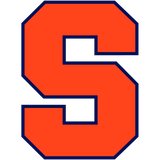
ACC Preview: Will Dino Babers' offense make Syracuse dangerous in 2016?
There is perhaps no greater philosophical shift in college football than the one taking place at Syracuse, a transition from Scott Shafer's defensive-minded approach to new coach Dino Babers' no-huddle spread attack.
The Orange pieced together offense-optional rosters in three seasons under Shafer, the program's former defensive coordinator turned head coach — finishing 99th, 121st and 77th nationally in scoring, respectively — and now they're led by the conductor of a high-octane points machine responsible for three conference titles in four seasons at Eastern Illinois and Bowling Green.
Last season, Babers' second at Bowling Green, the Falcons averaged 42.2 points per game behind senior quarterback Matt Johnson and the country's fifth-ranked passing offense. But with a shift to a power conference and a roster far behind the ACC's reigning powerhouses, how will Syracuse perform during an extensive (and exhaustive) transition period?
How fast can the Orange operate in Year 1?
This much is guaranteed for Syracuse in 2016: There will be hiccups.
For his part, Babers seems to enjoy this transition process. Then again, he's never seen anything but success waiting on the other side.
"When you put this style of football in, this is the third time that I've seen a first day of spring ball practice underneath this system, and it always ends the exact same way: with a bunch of big guys over trash cans not saying much shaking their heads," the 55-year-old coach said at ACC Kickoff. "When they get done with that, so that I can speak to them, I look them dead in the eye. I tell them, 'That's the slowest practice we're ever going to have and we'll never be that slow again.'"
For Syracuse's offensive players, the offseason has focused equal attention on developing the speed of Babers' process — from practices to workouts to games — as they have learning a new system of plays. Perhaps even more attention. Babers teaches his system sans playbook, utilizing practice repetitions and film study over hard copies, but even when the route trees are digested the efficiency suffers without the accompanying pace. And there's a difference in operating at a high speed and hurrying.
Syracuse returns practically every contributing skill position player from last season's young offense, although there are significant losses along the offensive line, so talent is there. It's simply a matter of catching up to speed.
Regardless, expect more points. That seems like safest bet.
How will Brian Ward's defense hold up when the offense's growing pains pop up?
Babers brought Ward, his defensive coordinator at Bowling Green, along for the move. And unlike his head coach and offensive counterparts, Ward's focus will be slowing things down. As Babers said, "The defense played last year is more aggressive than what we're going to play."
Ward is installing a Tampa 2-style defense in Syracuse, another shift away from Shafer's preferences. A successful transition is possible due to the Orange returning playmakers like Antwan Cordy and Zaire Franklin (23 combined tackles for loss), but if the offense runs into trouble it could spell out extended stretches of playing time for Ward's defense. In other words, inefficiency on the other side of the ball could cause their overall numbers to suffer.
Syracuse's schedule offers few breaks in conference play: Outside of annual Atlantic clashes with Florida State, Clemson and Louisville, the Orange will take on Notre Dame and Virginia Tech. Improving on last season's top-70 finish in defensive S&P+ ratings — a comprehensive measure of unit efficiency — would be a pleasant surprise for Babers' program.
Will Steve Ishmael be ACC's breakout receiving star?
As the primary target of passing offenses ranked in the 100s nationally in 2014 and 2015, Steve Ishmael is easy to overlook. The former three-star receiver claims 985 career yards and 10 touchdowns as an underclassman, buried on conference leaderboards while six quarterbacks have logged time behind center.
Things could change for Ishmael in 2016, though, as he stands to be one of the biggest benefactors — along with projected starting quarterback Eric Dungey — in the new uptempo, pass-happy system.
The 6-foot-2 rising junior, who chose Syracuse over Louisville out of the overloaded Miami high-school ranks, is virtually guaranteed to vault into the school's top-10 in receiving touchdowns, yards and receptions this season. If Babers' attack begins to click and Ishmael is indeed the top target, though, he could join the more productive receivers the ACC has to offer.


